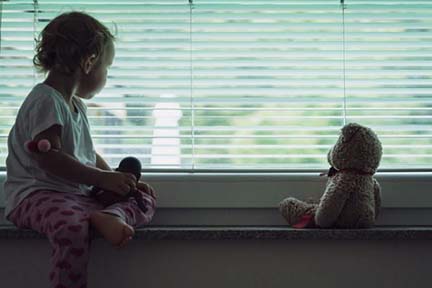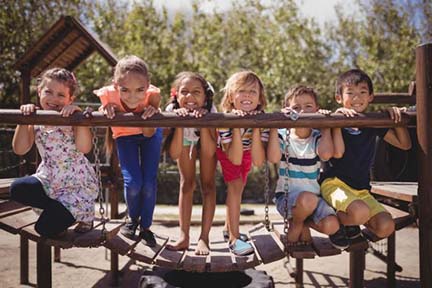
by orionontv | Sep 19, 2022 | Health and Wellness
Press Release
FOR IMMEDIATE RELEASE: Sept. 19, 2022
MDHHS CONTACT: Lynn Sutfin, 517-241-2112, [email protected]
ACD CONTACT: Erin Coller, 619-977-3500, [email protected]
MDHHS adds Guanidinoacetate Methyltransferase
Deficiency to newborn screening panel
LANSING, Mich. – September is Newborn Screening Awareness Month, and starting this month Michigan babies with guanidinoacetate methyltransferase (GAMT) deficiency will now be diagnosed early thanks to the addition of a new screening to the state’s newborn screening panel. GAMT is an inherited disorder that primarily affects the brain and muscles.
Newborn screening is a public health program required by Michigan law to identify babies with rare but serious disorders, like GAMT deficiency. All babies need to be screened in order to find the small number who look healthy but have a rare medical condition. Michigan’s newborn screening system provides testing and follow-up for more than 50 conditions. Michigan is the third state in the United States to screen for GAMT deficiency.
“By being one of the first states to implement GAMT deficiency screening, Michigan continues to display its dedication to providing newborns the opportunity to achieve the best possible health outcomes,” said Dr. Natasha Bagdasarian, MDHHS chief medical executive.
GAMT deficiency is an inherited condition that affects the body’s ability to produce creatine. Without an adequate supply of creatine, the body is unable to use and store energy properly. This can cause developmental delay, speech problems, seizures and behavior issues such as autism and hyperactivity. Lack of early treatment can lead to lifelong cognitive impairments which can be severe. Starting the dietary and medical treatment early in life before symptoms arise is most effective.
Heidi Wallis, executive director of the Association for Creatine Deficiencies (ACD), personally knows the importance of early diagnosis and treatment. ACD is committed to providing patient, family and public education to advocate for early intervention through newborn screening, and to promote and fund medical research for treatments and cures for Cerebral Creatine Deficiency Syndromes.
“I have two children with GAMT, and the difference a diagnosis at birth makes is nothing short of life-changing,” Wallis said. “My daughter, who was diagnosed at 5-years-old, has recurrent seizures that cause her to sustain serious injuries. She is intellectually disabled and will need constant care the rest of her life. My son, diagnosed and treated at birth, is a neurotypical 10-year-old and will no doubt become an independent and contributing member of society.”
In May, ACD announced that after six years of advocacy efforts, the United States Advisory Committee on Heritable Disorders in Newborns and Children voted unanimously to advise the Secretary of Health and Human Services Xavier Becerra to add GAMT to the Recommended Uniform Screening Panel (RUSP). The RUSP provides state newborn screening programs with a carefully curated list of disorders that meet the committee’s criteria for inclusion. GAMT is expected to be added to the RUSP upon HHS Secretary Becerra’s approval in November.
“We are grateful for Michigan’s addition of GAMT deficiency to their state newborn screening panel, and the momentum this will bring towards universal screening for GAMT,” said Wallis.
To learn more about GAMT deficiency, visit babysfirsttest.org and creatineinfo.org.
To learn more about newborn screening in Michigan, contact the MDHHS Newborn Screening Program at 866-673-9939, via email at [email protected] or visit Michigan.gov/newbornscreening.

by orionontv | Sep 14, 2022 | Health and Wellness
|
Press Release
FOR IMMEDIATE RELEASE: Sept. 12, 2022
MDHHS CONTACT: Lynn Sutfin. 517-241-2112, [email protected]
MDARD CONTACT: Chelsea Lewis-Parisio, 517-331-1151, [email protected]
Fairgoers reminded of precautions to take
at events featuring swine exhibits
Influenza A H1N2 variant identified in Michigan resident with exposure to swine
LANSING, Mich. – The Michigan Department of Health and Human Services (MDHHS) has announced a human case of Influenza A (H1N2)v in the state. MDHHS and the Michigan Department of Agriculture and Rural Development (MDARD) are urging fairgoers to take precautions to prevent infection at upcoming fairs where swine may be exhibited.
The case was confirmed by the Centers for Disease Control and Prevention (CDC) on Sept. 9, in a Berrien County fairgoer who had contact with swine at the Berrien County Youth Fair. The fair was held Aug. 15-20. Fair officials are working collaboratively with MDHHS and the Berrien County Health Department.
Fair season in Michigan extends into October. The following are steps Michiganders can take to protect themselves and prevent the spread of any illness:
- Anyone who is at high risk of serious flu complications and is planning to attend a fair should avoid pigs and swine barns.
- Refrain from eating or drinking in livestock barns or show rings.
- Do not take toys, pacifiers, cups, baby bottles, strollers or similar items into pig areas.
- Avoid touching your eyes, nose and mouth. Germs spread this way.
- Avoid contact with pigs if you have flu-like symptoms. This includes being in a swine barn if you are ill as influenza can be spread via respiratory droplets.
- If you are sick, stay home from work or school until your illness is over.
- Avoid close contact with sick people.
- Cover your nose and mouth with a tissue when you cough or sneeze. Throw the tissue in the trash after you use it and wash your hands.
- Wash your hands often with soap and water. If soap and water are not available, use an alcohol-based hand sanitizer.
Swine influenza is a respiratory disease in pigs caused by type A influenza viruses that regularly circulate among swine. Swine influenza viruses do not usually infect humans, but human infections have been reported. People cannot get swine influenza from eating properly prepared pork or handling pork products – only from contact with an ill pig.
Symptoms of swine influenza in people are similar to the seasonal flu and can include fever, cough, runny nose, and sometimes body aches, nausea, vomiting or diarrhea. On rare occasions, swine influenza in humans can lead to severe diseases, such as pneumonia or death. Physicians are reminded to consider swine influenza in persons presenting with these symptoms, even during the warmer months when seasonal influenza cases are low.
Those at higher risk of developing complications if they get swine influenza include children younger than 5 years of age, people 65 years of age and older, pregnant women and people with certain chronic health issues, such as asthma, diabetes, heart disease, weakened immune systems and neurological conditions.
If you are experiencing any of these symptoms, the Berrien County Health Department urges you to monitor their progress, talk with your primary care physician and inquire about a test to confirm the diagnosis. If you have concerns, please contact the local health department at 269-926-7121.
Currently, there is no vaccine for swine influenza, and the seasonal flu vaccine will not protect against it. However, antiviral drugs, such as Tamiflu and Relenza, are effective in treating swine influenza. Early treatment works best and may be especially important for people with a high-risk condition.
This is the first case of Influenza A (H1N2)v confirmed in Michigan this year. Five cases of human infection with influenza viruses that usually spread only in pigs were reported to CDC in August 2022. These cases include three infections with influenza A(H3N2) variant (A(H3N2)v) virus and two infections with influenza A(H1N2)v virus. These cases were identified in West Virginia (3), Oregon (1) and Ohio (1). Four of the five cases reported exposure to pigs or attendance at an agricultural fair prior to illness, and one reported no contact with pigs or attendance at an agricultural fair prior to illness. No hospitalizations or deaths have occurred among these five cases, and all patients are recovering or have recovered from their illnesses.
To date, no person-to-person spread associated with the five recent variant influenza virus infections has been identified.
For more information on minimizing the transmission of illness at livestock exhibitions, visit the USDA website. For more information on swine influenza, visit the CDC website. |

by orionontv | Aug 29, 2022 | Health and Wellness

Press Release
FOR IMMEDIATE RELEASE: Aug. 26, 2022
MEDIA CONTACT: Bob Wheaton, 517-241-2112, WheatonB@michigan.gov
Children who have been abused or neglected will get support they deserve with funding of advocacy centers
MDHHS notified that anticipated federal reductions will not occur
LANSING, Mich. – The Michigan Department of Health and Human Services (MDHHS) has received good news from the federal government about funding administered under the Victims of Crime Act – the same act that provides funding for Michigan’s Children’s Advocacy Centers that support children affected by physical and sexual abuse.
An anticipated reduction in federal funds will not materialize and MDHHS has made the decision to ensure that all Children’s Advocacy Centers currently funded with federal Victims of Crime Act dollars will be funded at the same or greater levels next fiscal year.
Total funding for next fiscal year will be approximately $12 million.
“This funding is going to maintain or enhance the level of services that we provide to 10,000 children across Michigan,” said Julie Bird, director of Children’s Advocacy Centers of Michigan. “I want to thank the state and everyone who has worked on our behalf for their support — we look forward to building an even stronger partnership with the state as we work together to support children affected by physical and sexual abuse.”
Children’s Advocacy Centers offer a variety of services to children who are victims of abuse or neglect – including providing a comforting setting for children to be interviewed about abuse by people who understand trauma.
“Supporting our children who have been the victims of physical abuse or neglect is one of the most important things we do at MDHHS,” said Director Elizabeth Hertel. “Children’s Advocacy Centers play an invaluable role in helping kids who are dealing with profound trauma.”
Based on previous communication with federal partners, MDHHS’s Division of Victim Services was anticipating a significant decrease in federal funding. To provide partners at local Children’s Advocacy Centers with information as soon as possible, the department notified them of anticipated reductions in their funding for next fiscal year. When the department received official notification from the federal government Thursday, however, MDHHS learned that the anticipated reductions would not be realized. |

by Becky Andrus | Aug 18, 2022 | Health and Wellness
|
Press Release
FOR IMMEDIATE RELEASE: August 18, 2022
CONTACT: Chelsea Wuth, 517-241-2112, [email protected]
“Create Your Calm” campaign seeks to defuse emotions,
enhance learning in K-12 classrooms
Slogan is used on child-friendly items made available by the Stay Well program
LANSING, Mich. — As students and teachers across the state head back into K-12 classrooms this month, the Michigan Department of Health and Human Services’ (MDHHS) Stay Well program is offering educational tools and resources to help create and maintain a calm learning environment.
Among the free tools available are child-friendly “Create Your Calm” posters, stickers and magnets. These items demonstrate simple breathing and emotional grounding exercises that anyone can do when feeling overwhelmed, anxious, tense or distracted. The items may be ordered by completing this form, which is available on the “Resources for Schools” page of the Stay Well website.
The grant-funded Stay Well program launched in early 2020 to help Michiganders cope with emotional distress caused by the COVID-19 public health crisis. The program is sharply focused on serving youth and their caregivers, including parents, teachers and school counselors.
“Numerous studies show the mental health of our young people declined during the pandemic,” said Jody Lewis, Stay Well program director. “That has made teaching all the more challenging, leading to burnout and emotional stress among educators. Create Your Calm is intended as a reminder to kids and adults alike that we can concentrate and learn better when our minds and bodies are relaxed. We hope schools – and youth-oriented organizations of all types – will take advantage of these free resources.”
Also available on the Resources for Schools page are recorded webinars with strategies for addressing behavioral and mental health issues among students:
To learn more, visit Michigan.gov/StayWell. |

by Becky Andrus | Aug 17, 2022 | Health and Wellness

Press Release
FOR IMMEDIATE RELEASE: Aug. 17, 2022
CONTACT: Bob Wheaton, 517-241-2112, WheatonB@michigan.gov
MDHHS demonstrates strong progress in keeping children safe
Michigan has implemented 67 improvement strategies in four months
LANSING, Mich. – The Michigan Department of Health and Human Services (MDHHS) today described its progress in improving safety and other outcomes for youth in the state’s child welfare system.
The update came during a virtual appearance before Judge Nancy G. Edmunds in U.S. District Court for the Eastern District of Michigan.
“I’m pleased and optimistic,” Judge Edmunds said during the court hearing. “I think everyone seems to be heading in the right direction with the same goal in mind.” She said she would like the monitors appointed by the court to review and validate the department’s implementation of the new strategies and then share with the court the effects of the changes.
In four months MDHHS has implemented 67 strategies identified in a plan it developed in April to improve services provided to youth and families involved with the state’s child welfare system.
“We have made substantial strides in the last few months and will continue to improve our child welfare system,” said MDHHS Director Elizabeth Hertel. “We have devoted significant resources to this goal. Our team – MDHHS staff and our private agency partners – continue to work hard on behalf of children and families. We will not rest until Michigan accomplishes its goal to keep our children safe.”
Some of the improvement strategies that MDHHS detailed today include:
- Creating specialized staffing positions throughout the state to support relative/kinship caregivers, with more than 289 caregivers assisted by the staff.
- Creating the Division of Child Safety and Program Compliance to assist and provide additional oversight of contracted agencies that provide congregate care or place children in foster care homes or facilities.
- Increasing training for frontline staff and improved processes to reduce the number of sibling groups separated in foster care.
- Forming a partnership with the State Court Administrative Office to collect data that will help the department and the courts better monitor the time it takes for children to get permanent homes through reunification with their parents or adoption.
Federal court monitors have been tracking the MDHHS’s progress since a court settlement in 2008 following a 2006 lawsuit by the advocacy group Children’s Rights.
To view additional information about MDHHS’s progress in this area, go to www.michigan.gov/ChildWelfareAgreement.

by Becky Andrus | Aug 17, 2022 | Health and Wellness
|
Press Release
FOR IMMEDIATE RELEASE: August 17, 2021
CONTACT: Chelsea Wuth, 517-241-2112, [email protected]
MDHHS releases “Tobacco-Free Report Card” for Michigan colleges and universities
LANSING, Mich. –The Michigan Department of Health and Human Services (MDHHS) Tobacco Section released the “Tobacco-Free Report Card: Michigan Colleges and Universities,” which reports on the current state of tobacco-free and smoke-free campus policies in Michigan.
“MDHHS applauds the schools with 100% tobacco-free campuses and encourages all campuses to go 100% tobacco-free,” said Dr. Natasha Bagdasarian, MDHHS chief medical executive. “Tobacco use is the number one cause of preventable death and disability in Michigan, and at least 99% of cigarette smokers start before the age of 26. In Michigan, adult e-cigarette use is highest among young adults. Tobacco-free policies on college and university campuses are an effective strategy to prevent young adults from using tobacco and help current users quit.”
Currently, one in three campuses have a 100% tobacco-free campus policy. The report also includes a list of Michigan colleges and universities, and the grade or score they received as a result of their current tobacco policy with the detailed scoring methodology explained. The report card includes information on tobacco use, secondhand smoke exposure, tobacco-free smoke policies and information on how to receive technical assistance to improve your smoke-free policies.
“We are encouraging Michigan colleges and universities to use this report card as a tool to improve the health of their students, faculty, and staff. These policies aim to change social norms, prevent initiation, decrease secondhand smoke and aerosol, and encourage quitting,” says Amanda Gallaher, author of the Tobacco-Free Report Card.
The MDHHS Tobacco Section offers training and technical assistance to support tobacco-free and smoke-free campus policies. To request a training or other technical assistance, contact the MDHHS Tobacco Section at 517-335-8376 and visit Michigan.gov/Tobacco to learn more about tobacco prevention and cessation resources in Michigan.
There are grant opportunities available to colleges that are not currently 100% tobacco-free to support the adoption and implementation of tobacco-free policies.
For residents in need of assistance in quitting tobacco, the Michigan Tobacco Quitline – 800-QUIT-NOW (800-784-8669) – is available 24 hours a day, seven days a week. For more information about the Quitline, visit Michigan.gov/Tobacco. |








